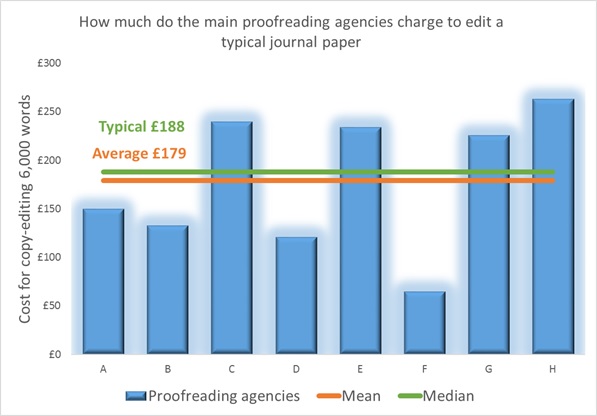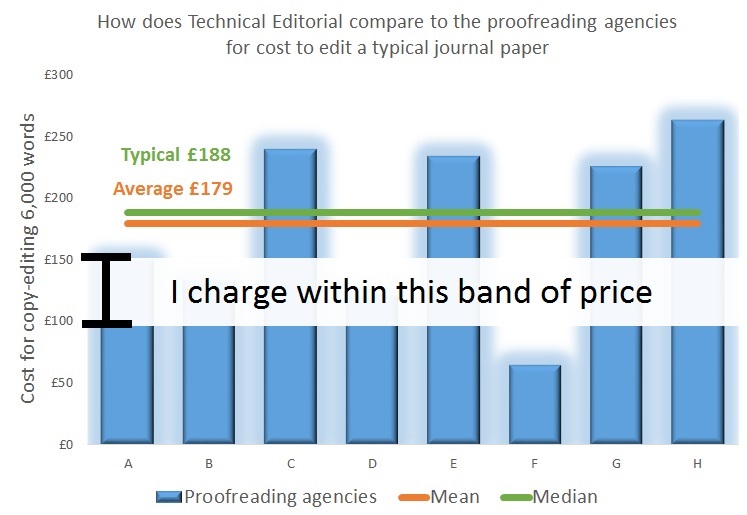Proofreading agency vs freelance proofreader
Round one: cost.
So you've decided to have your journal article proofread. Maybe this is on the advice of an editor for a journal, or maybe you just want to get the most out of your article to make sure that language does not get in the way of conveying the achievements of your research.
Now what?
I suspect that the next thing that most people would do is to Google something like:
"language editing journal article"
It is rare for anyone to look beyond the first page of Google's results, so, in order to assess costs across the industry, I have collated the costs for copy-editing a typical journal paper from every agency listed on the first page of Google's search results.
Not many people know the difference between editing, copy-editing and proofreading, and the reason for this is, I believe, that to most people it is not important.
For peer-reviewed journal articles, the important thing is that the paper is accepted by the journal for publication, and that the quality of English lives up to the quality of the research.
In my experience, the description that best matches the service required by a non-native English speaker is a copy-edit. This is a thorough edit, including some re-writing to make it read like it was written by a native English speaker. It includes the basics of proofreading such as spelling, punctuation and grammar, and also looks at formatting and style, including editing (but not creating) the reference section and checking cross-references of figures, equations, tables and sections and ensuring compliance with a target journal's style guidelines.
A thorough service.
I researched the cost of copy-editing a 6,000-word journal article, on a one-week turnaround. The results are shown below.

The first thing to notice is the difference in price: you can pay over three times as much for editing your paper with company H than you would with company F.
The green line is the median, a measure of the typical value within a given set. The orange line is the mean, or average cost across the set.
So, this is my competition. Am I cheaper? Well, actually my rates are always more expensive than agency F. They are also always cheaper than agencies C, E, G and H. This is one big difference between a freelancer and an agency: a freelancer will usually want to see a sample of your work first, before quoting. This is because he/she will want to get a feel for what your document needs and they will then charge you based on how much work this involves.
I wrote a blog on how I calculate my proofreading fees on a per 1,000 word basis; it is based on how long the job will take.

I have plotted the range of fees that I charge for copy-editing articles in the region of 6,000 words. I have a minimum fee of £100, and the most that I will charge is £150.

Which service is best? How do I know what I'll get for my money? What can I expect if I go with a freelancer versus an agency?
These are the questions that will be answered in the next blog: Proofreading agency vs freelance proofreader round 2: service.
